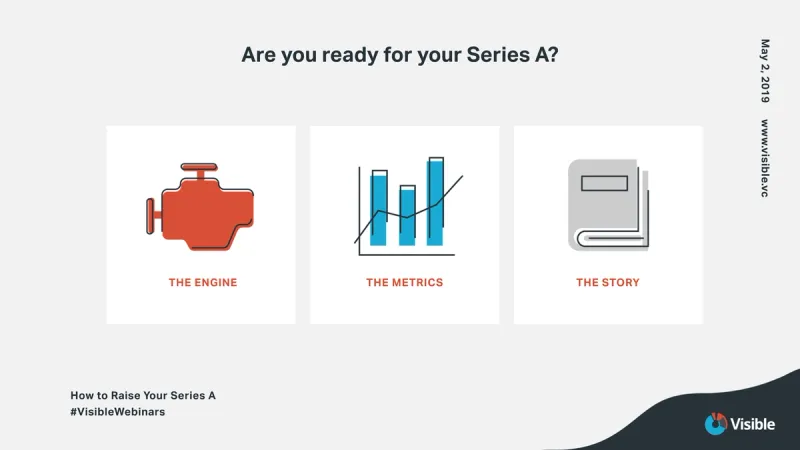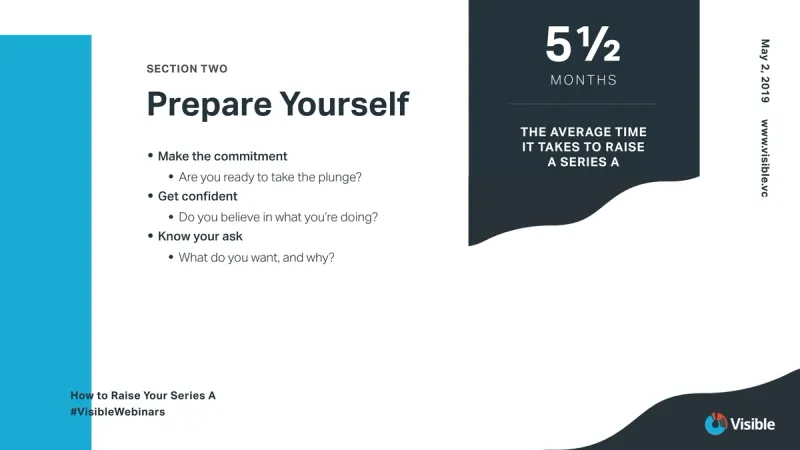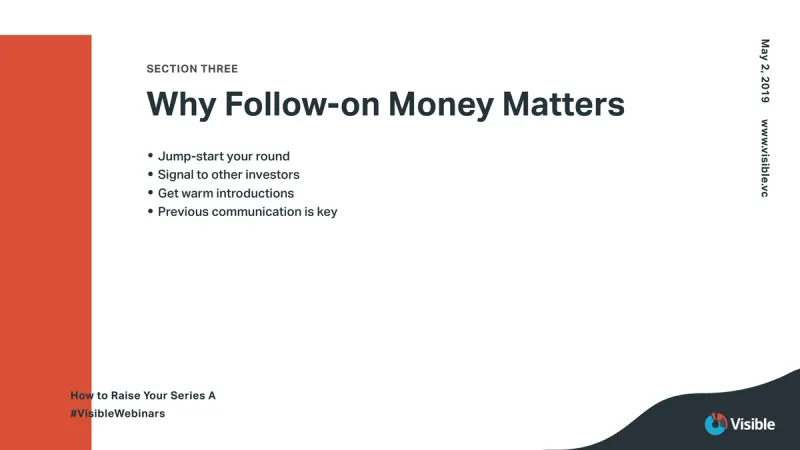Last week, we hosted a webinar on how to raise a Series A. In it, Zylo CEO & Co-Founder Eric Christopher and I shared tactics and advice on how to make sure your Series A raise is a successful one. If you made it, thanks! We had a great turnout of engaged audience members. If you weren’t able to make it, you can check out the recording below:
Today, I want to share three key takeaways from the webinar, in the hopes that they might help you raise your next funding round.
How to know if you’re ready to raise?
Series A readiness is a difficult thing to pin down. So much depends on your specific situation: the industry you’re in, the product you’ve built, your business model. A good breakdown of specific numbers you should be hitting can be found here, but even that list isn’t universal.
As a general rule, though, you’ll know you’re probably ready to raise your Series A when you have these three things: an engine, healthy metrics, and a compelling story to tell.

“An engine” refers to a predictable engine for acquisition. Acquisition of what, exactly, will depend on your company; it could be users, customers, revenue, etc. The important thing is, do you have a predictable way to acquire more?
Healthy metrics refers to three general patterns: accelerated growth, low churn, and efficient acquisition. If your metrics demonstrate all three of these things, you’ll be very attractive to potential investors.
The third item is this: can you tell a compelling story? This is potentially the most important item of the three. Every investor wants to invest in a good story. If you can effectively communicate what you’ve done so far, then paint a clear picture of what the future will look like if you keep succeeding, you’re likely to have success with your raise. If an investor likes the sound of that future and they believe you can make it happen, they’ll invest.
Before you raise, commitment is key
If you think your company is ready to raise a Series A, the first thing you have to do is prepare yourself. You have a lot of hard work ahead of you.

A Series A raise takes, on average, about 5.5 months to complete. That’s a lot of time where your focus will be outside of the day-to-day of your business. You’re also going to face a lot of rejection—the most common answer after pitching an investor, after all, is “no.”
A CEO/Founder who is undertaking a Series A round needs to be fully prepared to do so—committed to seeing it through, confident in their pitch, and always working with a specific goal in mind. Before diving into your Series A raise, you need to make sure you’re prepared for what it means.
Don’t forget about your current investors
Your current investors can be absolutely essential in closing your Series A round—whether they participate in the round or not.

If your current investors choose not to follow on—for whatever reason—they can still be a huge help to you as you raise your round. They can provide everything from pitch feedback to warm introductions to other investors who might be a better fit.
These are just three takeaways from our webinar on raising your Series A round, but there’s plenty more content where that came from. Check out the recording below:



